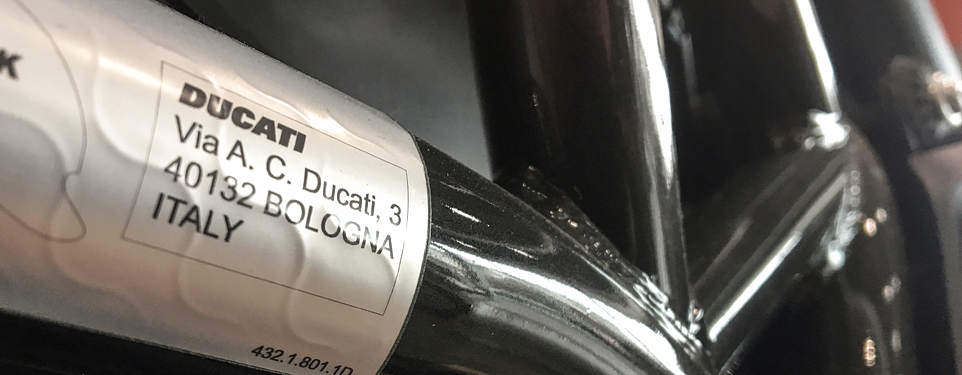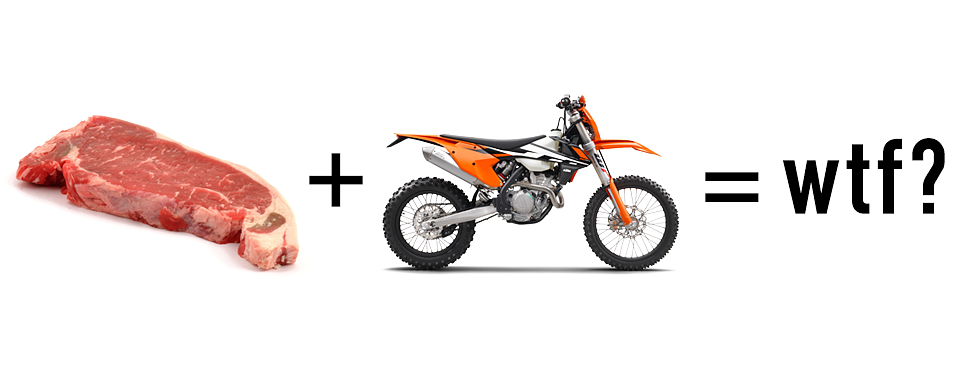Recently, the American Motorcyclist Association alerted its members about an effort by American beef producers to have the U.S. government slap a 100 percent import tariff on European-made motorcycles with engine displacement of less than 500 cc. This created quite the stir in the motorcycling community, but it is not the “beef tariff” that American motorcyclists should fear.
Since he won the election, President Donald Trump has been pushing to have vehicles sold in the United States made in the United States. He promises significant import tariffs on vehicles constructed overseas. Earlier this month, Trump threatened to slap a 35 percent import tax on BMWs made in Mexico.
On Thursday, Trump met with Harley-Davidson executives and union workers at the White House and said that tariffs imposed by President Ronald Reagan on imported motorcycles in the 1980s probably prevented Harley-Davidson from going out of business. While Trump only mentioned current tariffs in one sentence of his statement, he did suggest news is coming.
“We're going to be doing taxing policies very soon,” Trump said. “It's going to be coming out.”
While the president so far has talked about vehicles built in Mexico, what if he expands his menu of targets to Triumphs built in Thailand or Hondas built in India? Would motorcycle manufacturers be expected to build motorcycles intended for the U.S. market within the United States? Since many mid-priced and low-priced models could never be built economically in the United States, would they simply disappear from our shores? Would we buy that new Honda CB500X if it cost $10,000?
Remember, the U.S. motorcycle market is comparatively tiny to that of Asia. If not for the volume of business the big four Japanese manufacturers did in Asia, they might not be able to afford the research and development required to sell attractive motorcycles at a price U.S. (and European) consumers could or would pay. What would the Triumph Street Twin or Ducati Scrambler sell for if it had to be made in the United States (or the UK and Italy, respectively)? Thus far, Trump has said that he is targeting nations which he believes trade unfairly and corporations that construct vehicles in those nations. But who is to say that the list won’t grow, especially if he doesn’t get the economic results he hopes to get?
What about parts? In today’s world, vehicles assembled in one country are often constructed with parts from around the globe. For example, Showa has facilities in the United States, Canada, Brazil, Spain, Wales, Indonesia, Thailand, Taiwan, India, China, Vietnam and Mexico. One might assume that the Showa fork on your all-American Harley-Davidson is made in Ohio, but I know at least some read “Made in Japan.” Do some say “Hecho en Mexico”? Will Chinese-sourced parts be off-limits on U.S.-bound bikes in the future?

Please note that I am discussing specific import taxes on vehicles and, possibly, taxes on imported components. This is a separate issue from the border-adjusted tax put forth by Republicans in Congress. The border-adjusted tax would prohibit U.S. corporations from deducting the cost of goods purchased overseas from their taxes. As Republicans wish to lower the corporate tax rate to 20 percent, this would place an effective 20 percent tax on imported goods. Revenue from U.S. exports would not be taxed. Most developed nations have such tax policies, often referred to as value-added taxes. The results of VAT policies for keeping production onshore have been mixed. In a world of freely floating currencies, currency values tend to adjust by the amount of the border-adjusted tax, thereby limiting or eliminating its effectiveness. The most common result from a border-adjusted tax is a stronger currency, which tends to harm exports. On its post-earnings research call on January 31, Harley-Davidson management mentioned the already-strong U.S. dollar is harming sales in foreign markets.
I am not trying to be political or too financially geeky, but I am frustrated that the AMA and some moto publications are running around like Chicken Little about an effective redux of the so-called Chicken Tax , but are paying little mind to the potential effects on motorcycling from protectionist trade policies. I won’t even begin to discuss the benefits that competition provides for consumers. That is a discussion for another day.
I am not asserting that protectionist tariffs and/or border-adjusted taxes will be implemented and I am not here to debate the merits or detriments of such policies. However, I believe chances are much better that we see some kind of import tariff or border-adjusted tax regime than we see a so-called beef tax. Broad import tariffs and/or border-adjusted taxes promise to have greater impacts on the U.S. motorcycle industry than a small trade spat with the Eurozone.







